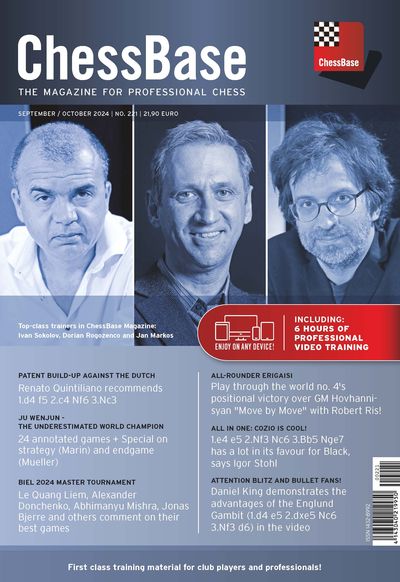- 1 x 100 Jaar Belgische schaakgeschiedenis
- 2 x Emanuel Lasker - A Chess Biography
- 1 x The Two-Move Chess Problem
- 1 x 10 Great Ways to Get Better at Chess
- 1 x New In Chess Magazine 2024/5
- 1 x Typisch Königsindisch
- 1 x 2x Fabiano Caruana
- 1 x Gideon Stahlberg - An Epoch in Swedish Chess, Volume I
- 1 x The 100 Tactical Patterns You Must Know Workbook
- 2 x ChessBase Magazine 221 (+DVD)
- 1 x A Modern Approach against the Sicilian, Vol. 1 + 2
- 1 x 100 Endgames You Must Know + Workbook
- 1 x A Complete Opening Repertoire for Black - Volume 1 + 2
- 1 x The Real Paul Morphy (Hardcover)
- 1 x Sunrise in the Bronx
- 1 x Schaakklokken: DGT1500 Blauw
- 1 x Think like Ivanchuk
- 2 x Think like Ivanchuk (Hardcover)
- 1 x 365 x Schachtaktik für Experten
- 1 x Endgame Studies
- 1 x A Cutting-Edge Gambit against the Queen’s Indian
911.88€
Categorieën
Snelzoeken
Munteenheden


